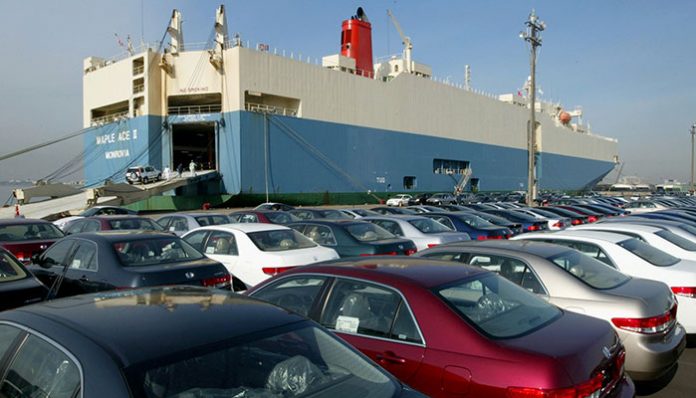
By Orville Williams
As part of the drive to transition to green energy, some adjustments are expected to the policies that facilitate the importation of used vehicles into Antigua and Barbuda, within the next ten years.
Chief Environment Officer at the Department of Environment (DoE), Ambassador Diann Black-Layne, made that disclosure yesterday, during a discussion on Observer AM.
Used or second-hand vehicles as they’re often referred to, account for a significant portion of the vehicles owned and driven by residents in Antigua, particularly those purchased via the Japanese market.
That particular market is rather popular for vehicle purchases in the twin-island nation, as it offers a variety of models in relatively good condition, for lower prices than new vehicles or even second-hand vehicles bought locally.
According to the website of one of the leading Japanese used vehicle portals, Japanese Car Trade, “Antigua and Barbuda is a profitable market…most vehicles on the road [there] are imported ones, mainly from Japan.”
The website said further that the ban on importing used vehicles older than five years – put in place by the government back in 2014 – “hasn’t hampered the market of used vehicles…the used car market is now not only larger in size, but also growing at a rate faster than the new car market while undergoing structural changes and getting more organized.”
The aforementioned benefits to both buyers and sellers, however, do not extend to the environment, as more gasoline and diesel-powered vehicles entering the country means increased greenhouse gas emissions. That, of course, spells trouble.
The solution to this troubling issue has and continues to be rolled out in countries and territories across the world – more environmentally-friendly and sustainable means of transportation in the form of electric vehicles.
Many governments are changing their policies to support the transition to widespread use of these vehicles, while manufacturers are also following suit.
Black-Layne noted that while it may be some time before that transition takes effect in Antigua and Barbuda, the process will be helped along by a restriction on the importation of the used vehicles.
“To transition the vehicle sector [it] is really going to take a long time, [but] there will be a time – as you would see in Europe, the UK and other countries – when you would have to ban those vehicles from coming in.
“That time is not now, but [it] is coming within the next ten years, when the economy will not be able to support those vehicles anymore.”
She was speaking alongside DoE colleague, Melissa LeBlanc, who is heading up the Sustainable Low-Emission Island Mobility (SLIM) project, aimed at introducing more electric vehicles into the local transport sector.
The DoE executed a similar project last year, with the procurement of two electric buses that were integrated into the National School Bus System’s fleet.
Black-Layne explained that these initiatives will not only be focused on getting the vehicles into the island and in use, but also equipping locals with the capacity to service them.
“Sometimes other countries transition and dump old vehicles onto us, like the Japanese market right now. It looks cheap, but they’re really not very good [and] they don’t last that long, so we’re working toward ensuring that we’re not a victim of that.
“As part of this project, policies will be presented to the government for options and some of these options would be, when [a person] is bringing in a second-hand vehicle, it could be an electric vehicle for example. We’re getting ready to be prepared for that as well, so that we have people here in Antigua that can service those vehicles.
“We’re working with [the Antigua and Barbuda Institute of Continuing Education] ABICE – one of our leading technical schools – as well as the Antigua State College Engineering Department. We’ll be providing them with second-hand electric vehicles that they can practice on, so they can be trained.”
In an attempt to calm fears over the forthcoming adjustments, Black-Layne added that a similarly affordable market would be available to persons who depend on the used car market for business.
“Taxi drivers and so on, their business model works best with second-hand vehicles and we’re not worried about that, because right now there is this huge flood of electric vehicles coming to the market, about two years earlier than we predicted.
“People are going to exchange their old electric cars for new ones, so the second-hand electric vehicle market will also be upon us shortly. So, we believe that the transition is going to be okay,” she said.
Meanwhile, LeBlanc disclosed that the SLIM project will be procuring two electric buses and two electric taxis to be used “in the public bus fleet and the airport’s taxi fleet,” and she also spoke on the renewable energy that will be required to power the vehicles, based on the DoE’s mandate.
“We have engaged with the West Indies Oil Company (WIOC)…they’re interested in learning about electric vehicles and the charging technology, so that they can maintain their market space.
“So, where they were [only] fueling cars before with gas, now they’d be fueling cars with renewable energy and electricity,” LeBlanc explained.
